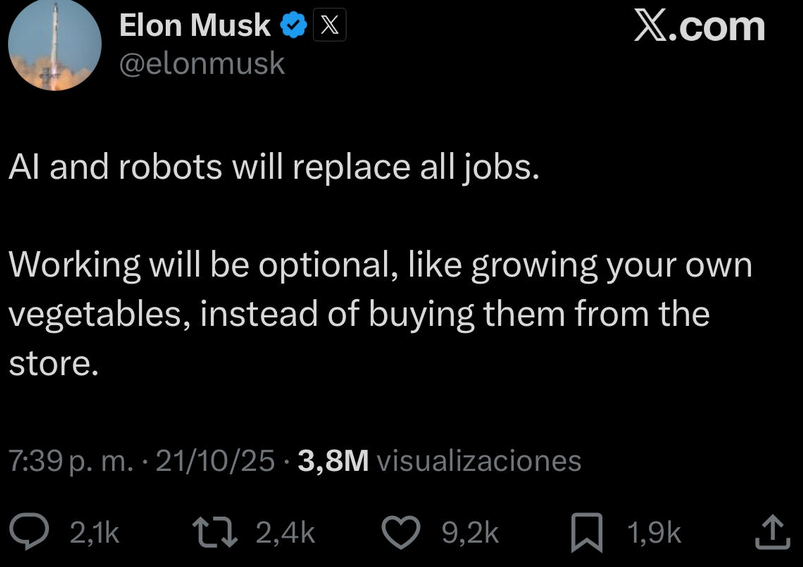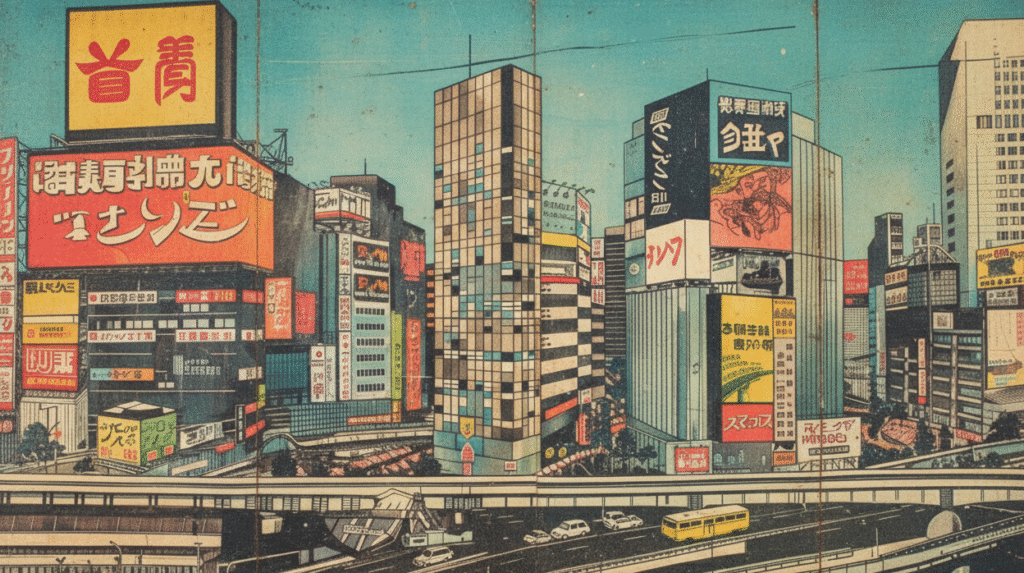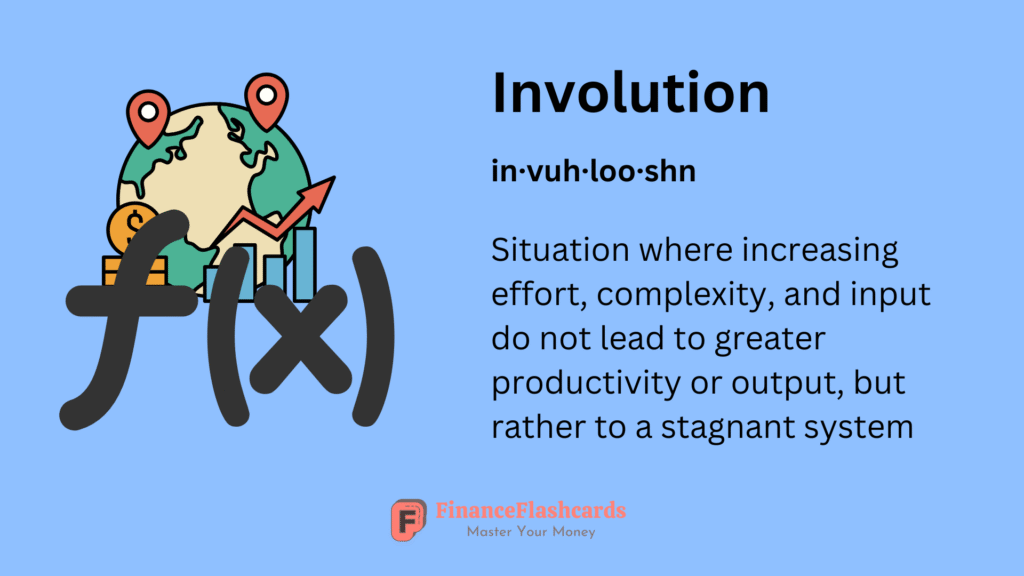
Dostoyevsky had an answer 150 years ago — and it still matters today.
Yesterday I was listening to a podcast. The hosts were talking about technology and, like many others lately, they mentioned the concept of Universal Basic Income — something many voices have been discussing for years.
If you’re not familiar with this idea, it’s the proposal that every person would receive a guaranteed salary from the government.
Universal Basic Income (UBI) refers to a policy in which every individual in a defined population regularly receives a cash payment, without conditions.
Key features often cited:
• Periodic payment instead of a one-time grant
• Paid directly in cash (or equivalent) so the recipient has choice
• Universal: given to all (or broadly all), not just the poor
• Unconditional: no requirement for labor, job search, or qualifying criteria (in its pure form).
Variations exist — for example, basic income limited to certain groups or with conditions. Some sources distinguish between universal basic income and other forms like guaranteed minimum income.
The goal, in theory, is to ensure basic security in a world where automation and artificial intelligence may reduce the need for human labor.
Hmm. This one sounds familiar… Pretty sure Marx said it first — but instead of redistributing the fruits of people’s labor, it would now be about redistributing the fruits of robots and AI. Since… AI and robots don’t eat fruit. Got it.
Sounds good — but what’s on the other side of the coin?
The Crystal Palace and the Underground Man
But there’s another voice we can’t ignore — the voice that reminds us that human beings are not purely rational, nor easily satisfied by comfort alone.
And when making a link between these ideas, it should be noted that for anyone living below the poverty line, UBI could represent basic human rights — once and for all.
But for those who already have everything, this could become the Crystal Palace.
In Notes from Underground (1864), Fyodor Dostoyevsky offered a haunting answer to the question that still lingers behind UBI: what happens when all our needs are met?
He imagined a world of perfect abundance — what he called the “crystal palace” — and warned that even if humanity were “drowned in happiness,” people would rebel simply “out of sheer ingratitude.”
Give him such economic prosperity that he should have nothing else to do but sleep, eat cakes, and busy himself with the continuation of the species,” he wrote, “and even then, out of sheer spite, man would play you some nasty trick.
Dostoyevsky understood that comfort doesn’t extinguish the human spirit — sometimes, it suffocates it. We crave meaning more than we crave safety. We need purpose, challenge, and the freedom to err.
And so, while UBI promise the external paradise — the perfect “system” — Dostoyevsky warns us of the internal void it might expose.
Beyond Systems: Returning to First Principles
This brings us to a deeper layer of the question — one that no economic model can fully solve.
How do we define happiness, freedom, or progress in the first place?
To answer that, it may be helpful to return to what the ancient philosophers called first principles.
The term comes from Aristotle’s Metaphysics (Book IV), where he wrote:
A first principle is that which does not follow from anything else.
These are truths that cannot be reduced further. In other words, when we strip away assumptions, ideologies, and borrowed opinions — what remains?
In reasoning, a first principle is like the root of a tree — everything else (the branches, the leaves) grows from it.
The Core Idea
Instead of reasoning by analogy (“this is like that”), first-principles thinking means reasoning from the ground up:
1. Identify what you know for sure is true.
2. Break complex things down into those truths.
3. Rebuild your understanding or solution based only on them.
This method forces you to challenge inherited beliefs and assumptions — what philosopher Descartes later called “methodic doubt.”
Modern innovators use this method to rethink technology: they break a problem down to its fundamentals, then rebuild from the ground up.
But the same reasoning can be applied to our moral and existential lives.
Before imagining a perfect system like UBI, perhaps we should ask:
- What do we truly believe about human nature?
- What do we owe each other?
- What makes life meaningful when survival is no longer the struggle?
These are first-principles questions — not about policy, but about purpose.
An Invitation to the Reader
So, before designing new economic utopias, maybe we should start with the inner one.
If you’re like me — someone who naturally asks these kinds of questions and cares about such topics — take a moment to try this simple exercise, designed to help you distill your beliefs down to your most fundamental truths: your first principles of self.
We’ll do it in three stages: (1) Identify, (2) Deconstruct, and (3) Rebuild.
1. Identify — Start with what you think you value
List 5–7 values or traits that feel important to you.
Examples: honesty, freedom, peace, success, love, growth, security, truth, justice, joy, beauty.
Write what comes naturally — don’t analyze yet.
2. Deconstruct — Ask “Why?” until you reach bedrock
Pick one of those values and ask yourself: “Why do I value this?”
Then take your answer and ask “why?” again — until you hit something that can’t be reduced further without becoming circular or meaningless.
Example:
Value: Freedom
→ Why do I value it? Because it lets me make my own choices.
→ Why is that important? Because making choices gives me authenticity.
→ Why does authenticity matter? Because living truthfully feels aligned with my soul.
→ Why is that important? Because truth gives life meaning.
Core principle: Truth is meaning.
Notice how we moved from freedom (a social value) to truth (a philosophical first principle).
3. Rebuild — Identify your irreducible principles
Now look at what’s left when you strip everything down.
Usually, people end up with 3–5 core truths, such as:
Category Example First Principle
These are your first principles of value. They act as internal laws — the foundation on which all your decisions, goals, and actions can align.
This exercise may reveal more about the future than any policy paper ever could. Because no universal income, no “crystal palace,” and no perfect system can make us happy if our own foundations are hollow.
Between the Island and the Self
The pursuit of a better world — from Dostoyevsky to UBI — will always reflect the same human paradox: we want freedom and comfort, but too much of one often kills the other.
Perhaps the real question is not whether a universal basic income will make us happy, but whether we understand what happiness truly is.
And perhaps, as Dostoyevsky and Aristotle both suggest in their own ways:
The path to a better society begins not with new systems, but with deep roots — the first principles of who we are.




